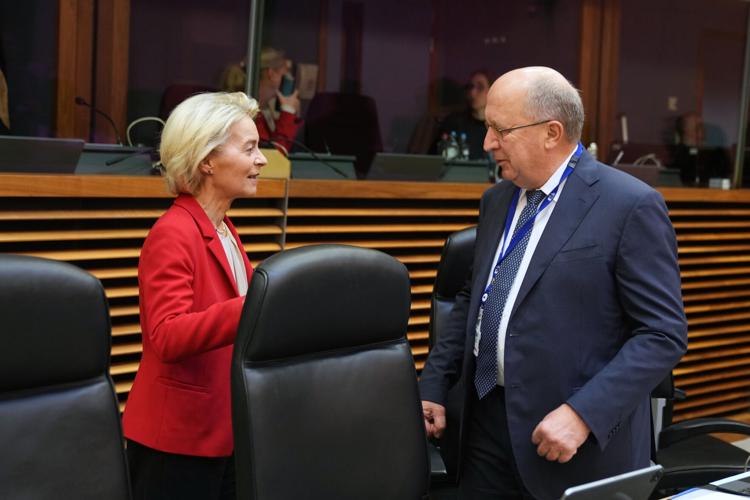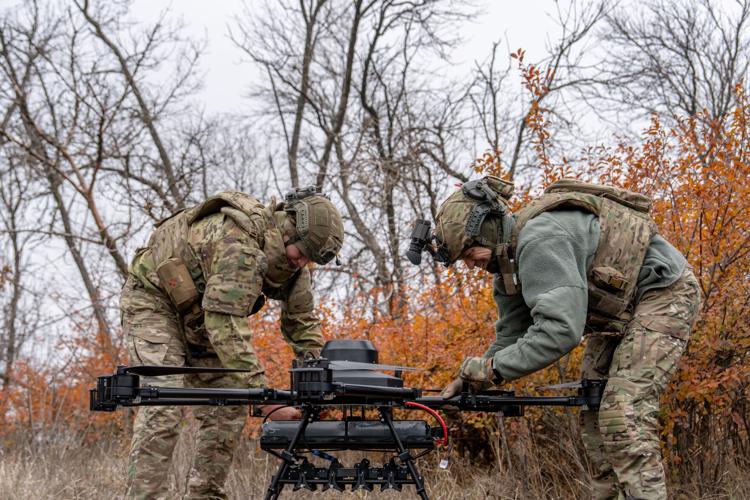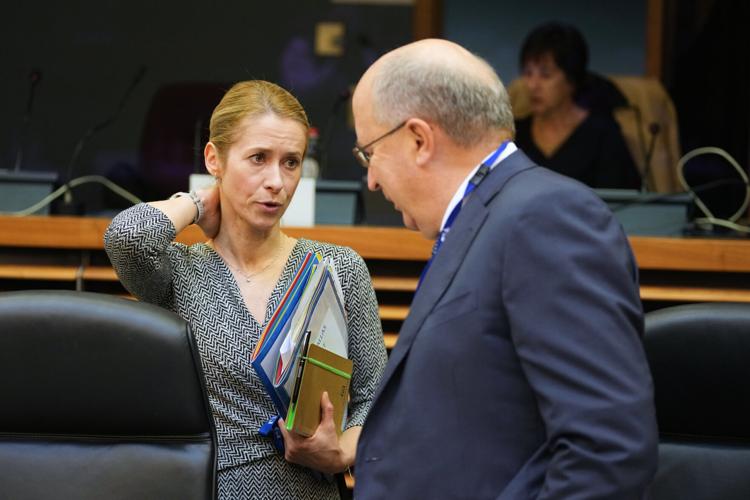BRUSSELS (AP) — The European Union's defense chief on Tuesday proposed deeper integration of the bloc's defense industry with Ukraine as a U.S. peace plan remains in flux and Russia's unconventional warfare operations rattle the 27-nation bloc.
EU lawmakers are due to hold a vote on a 1.5-billion euro ($1.7 billion) program, with 300 million euros ($345 million) slated for the Ukraine Support Instrument.
Ukraine's defense industry “needs us," EU Defense Commissioner Andrius Kubilius told EU lawmakers in Strasbourg, France, without mentioning the ongoing peace negotiations to end the war. "But we need Ukraine’s defense innovations even more,”
He said that allowing Ukrainian access to the EU’s Defence Investment Program “makes it possible to procure defense equipment in, with and for Ukraine.”
EU defense spending is expected to total around 392 billion euros (more than $450 billion) this year, almost double the amount of four years ago, before Russia launched its full-scale invasion of Ukraine on Feb. 24, 2022.
The Trump administration has signaled that it's prioritizing U.S. security on its own domestic borders and in Asia. It has told Europeans that they must fend for themselves and Ukraine in the future.
Born out of the carnage of the two world wars, the EU started as a trading bloc designed to avert conflict. But Russia's war in Ukraine has spurred a shift in the Brussels-based bloc, heightening its defense and security posture.
The European Commission, the EU's executive branch, believes that about 3.4 trillion euros ($4 trillion) will probably be spent on defense over the next decade. To help, it intends to propose boosting the EU’s long-term budget for defense and space to 131 billion euros ($153 billion).
EU member countries are being urged to buy much of their military equipment within the bloc, working mostly with European suppliers — in some cases with EU help to cut prices and speed up orders. Under the road map, EU nations should only purchase equipment from abroad when costs, performance or supply delays make it preferable.
Kubilius said that EU-based defense companies can apply for tax breaks and other financial incentives to fund so-called European defense projects of common interest that “no member state can ever build alone, but that will protect the whole of Europe,” like Eastern Flank Watch, Drone Defense Initiative or Space Shield.
Permitting Ukrainian companies to participate in these projects “allows us to inject Ukrainian military innovation in the European defense industry,” he said.
Last week, the European Commission rolled out a new defense package to allow tanks and troops to deploy more rapidly across Europe as well as the EU Defense Industry Transformation Roadmap, which aims to simplify and unify regulations on the EU’s defense industry, and corral investment into domestic production of weapons, vehicles, satellites, shells and bullets.






